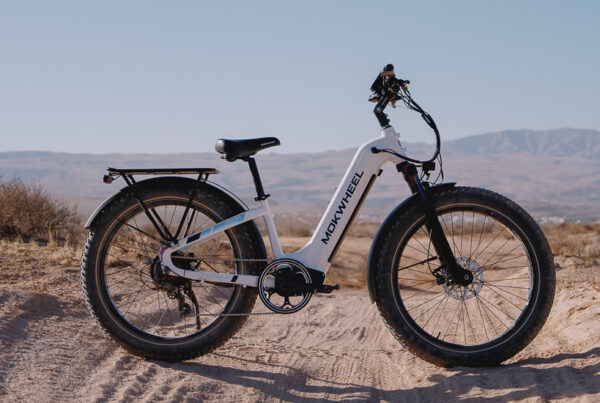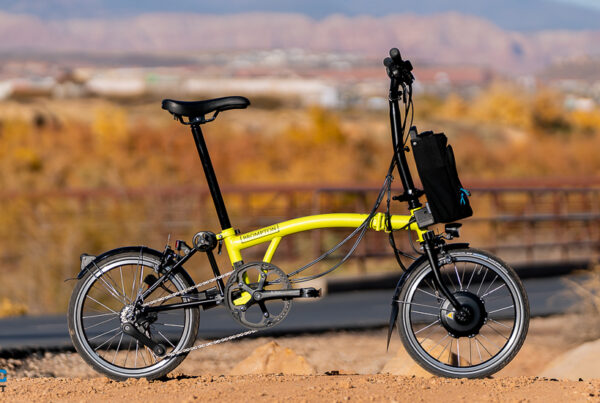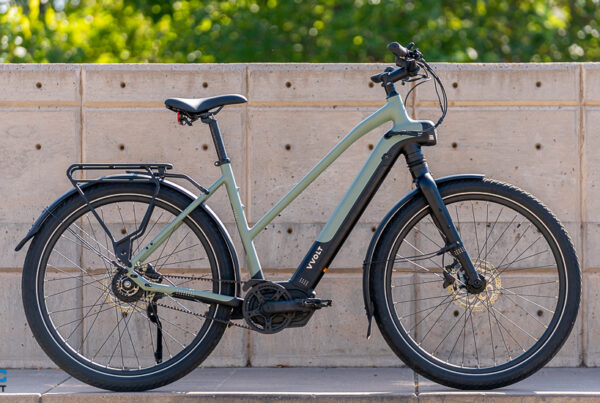Infrastructure
Pressure Builds on Portland City Hall over Hawthorne Avenue Bike Lanes
Portland, Oregon is well-known as one of the most pro-active biking cities in the US. But even there cycling activists sometimes need to fight their corner to promote bike safety it seems.
Streetsblog carries this detailed post on a scheme for a section of heavily-trafficked and dangerous Hawthorne Boulevard and City Hall’s transport bureau’s strange reluctance to introduce segregated bike lanes.
As the article explains, ‘Hawthorne is an extremely dangerous street for people walking, biking, and driving (it’s one of the city’s High Crash Streets and sees hundreds of crashes every year)…’
As the article makes clear, there is a ‘shovel ready’ plan for a cycle lane but PBOT (Portland Bureau of Transportation) seems to have rejected this relying on ‘racial equity and climate justice claims—that not only weren’t grounded in any facts, but run completely orthogonal to data-supported equity- and climate-friendly urban planning best practices—to justify a street design that data shows will decrease safety (and/or maintain currently unsafe conditions), and maintain current inequitable and anti-climate outcomes’.
No doubt there are many similar controversies across the US but being in one of the US’s ‘bike capitals’ it makes it even more important to send out the right message to those looking to follow the example of a truly bike friendly city.
eBike Law
‘Bafang has received a UK Conformity Assessment Marking (UKCA) from TUV SUD Certification and Testing (China) Co., an international third-party testing, inspection and certification institution. It indicates that Bafang’s Central Motor Drive System M200 (M200) conforms to the latest market access requirements of the UK. It is also the first UKCA certificate issued by TUV SUD to China’s e-bike industry’ reports the UK’s Bikebiz.
eBike Biz
Pierrer Mobility and Varta Cooperate on eBike Batteries
According to Bike Europe ‘Pierer Mobility, known for their Husqvarna, R Raymon and Gasgas e-bikes and battery manufacturer Varta have joined a strategic cooperation. The two companies aim to collaborate more closely in the e-mobility sector with a strong focus on the development of highly efficient battery systems for electric two-wheelers.’
As the article details, Varta had previously entered the e-bike market only to withdraw, so this joint enterprise represents their re-entry.
The Rise and Fall and Rise of Chinese eBikes
China has long been ahead of the pack when it comes to e-bikes – in terms of mass adoption at least, with use there dwarfing e-bike use in all other countries. As early as the 1960s Mao Zedong’s infamously radical communist government was experimenting with the e-bike’s potential though the technology was clearly not ready to power a great leap forward. By 1991 the governemnt’s National Science Board named e-bikes as one of the ten key scientific development priority projects in the 9th Five Year Plan.
All hasn’t always gone smoothly though; initial success after official promotion in 1990s saw a backlash as various cities attempted to ban e-bikes due to widespread flouting of weight and speed restrictions – in reality may early e-bikes were more akin to speedy electric mopeds. In one single crackdown Changsa city traffic police are said to have handed out 60,000 tickets in five days for illegal use of e-bikes. Another notable problem that emerged was them mass of lead acid batteries used in 95% or early e-bikes; when discarded it was estimated they emitted more highly damaging lead into the atmosphere than many other forms of transport.
The story has recently been updated by this Bloomberg article. It reveals there are some 300 million electric bikes on China’s roads and predicts ‘that number is predicted to surge on the back of rising popularity and policy initiatives.’ Despite being the world’s largest car market, it appears there is still plenty of mileage left in e-bikes as their popularity has surged recently following the trend in many other areas of the world:
‘The number of electric-bike makers in China underscores the sector’s potential. There were around 51,600 e-bike manufacturers registered in China in 2020, up 83% from 2019, government data show. And 223,000 companies were in businesses related to the electric-bike industry as of February. Investors have cottoned on. Shares of Yadea, a Shanghai-based, Hong Kong-listed company that designs and makes electric scooters and bikes, have risen almost 815% over the past 12 months; Jiangsu-based Ezgo Technologies, which is listed on Nasdaq and which makes e-bikes with lithium batteries, soared 350% in its trading debut in January.’
It also appears that new laws are finally having an impact and have also contributed to the sales surge, as the article tells us ‘New nationwide standards around electric bikes were introduced in April 2019, governing things like a bicycle’s weight, maximum speed and nominal voltage. Two-wheelers that don’t comply don’t get registered. Given an e-bike’s lifecycle tends to be about three years, many consumers are on the lookout for a new set of e-wheels that ticks all the boxes.’
Stay tuned for more e-bike news and reviews and thanks for reading!
Rich

Early Chinese e-bikes were more akin to mopeds








